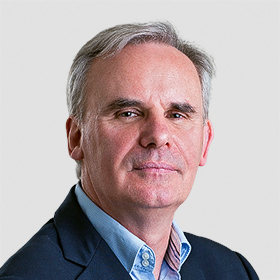Joe Biden, who is set to make his debut as the Democratic vice-presidential candidate in Denver tonight, reflected on the expectations generated by the prospect of a Barack Obama presidency yesterday, describing the election as the most important the Democrats have faced since the 1930s.
The normally verbose and gaffe-prone senator from Delaware has been unusually quiet since Obama named him on Saturday as his running mate. The silence is partly because of a call from Obama's team for more discipline.
On Monday, stopping outside Boney's Smokehouse barbecue stand in the centre of Denver, he refused to be drawn by reporters' questions, an almost unheard of occurrence for him.
But speaking to delegates from his home state yesterday he acknowledged the expectation raised about an Obama administration, drawing a parallel with the presidency that delivered the New Deal. He called the November election "the most incredible opportunity any president and vice-president will have since Franklin Roosevelt". He will have a chance to expand on that as the main speaker at the convention tonight, a role made more difficult than usual by having to follow Bill Clinton.
Biden, 65, and the veteran chairman of the Senate's foreign affairs committee, is hoping to eclipse the former president by outlining a radical shift in US foreign policy to repair what he regards as the wreckage of the Bush administration.
Crucial to that would be his role in the White House. There is a tendency to downplay the vice-presidency, both during a campaign and in the subsequent administration.
But Robert Dallek, professor of history at Boston University and the pre-eminent scholar on US presidents said yesterday that while vice-presidents never used to be important, "all changed in 1960 when Kennedy chose Lyndon Johnson as his running mate". The subsequent trend culminated in Dick Cheney's accumulation of immense power under George Bush. Dallek thought that the degree of power attained by Cheney "will make the next president cautious about giving the vice-president too much authority".
But others at the convention said it would not be easy to rein Biden in, given he is more experienced in foreign policy than Obama. There also appears to be little sign from the Obama camp that it necessarily wanted to roll back the centralisation of national security policy within the vice-president's office.
Biden spent the weekend with Obama's chief strategist, David Axelrod, in Delaware before travelling to Denver by train. He also met his security team for a briefing on the 24-hour surveillance that comes with the job.
In between, he has been working on tonight's speech. As well as setting out foreign policy he has been tasked with attacking the Republican candidate, John McCain. There has been a tendency at the conference so far to avoid attack politics but that does not apply to Biden, who unlike Obama is a scrapper able to deliver what a Democratic adviser described as "zingers" against McCain.
Another asset on the campaign trail is that Biden, from a Catholic working-class background in Scranton, Pennsylvania, might make a better job than Obama of connecting with white, working-class men in battlefield states such as Pennsylvania and Ohio.
While Biden's appointment has been generally well-received there are sceptics. Bloggers on liberal websites say that, for all the claims about this ability to connect with working-class voters, he only won 638 votes in the New Hampshire primary in January, forcing him to pull out.
Among the sceptics is William Galston, a former Bill Clinton adviser and now senior fellow at the Washington-based Brookings Institution, who said in a commentary sent to reporters that previous presidents had chosen running mates who could help swing their home states.
If Obama fails to win the election, he predicted "an orgy of second-guessing" over whether he could have chosen someone who might have delivered a crucial state. Obama chose Biden not primarily for his campaigning skills but with a view to government. Dallek said Biden was a good choice, especially against the background of security scares. "If for some reason Obama is incapacitated or, perish the thought, dies in office, people know he would be a competent president."
Steve Clemons, a director the Washington-based New America Foundation and among the first to tip Biden for the vice-presidential slot, is among those who argue that Biden's exercise of power in the White House would be similar to that of Cheney's. "The office of vice-president has changed forever," he said. "The office has explicit legal powers now. Maybe some will be rolled back but they can't be rolled back easily."
The difference is that while Cheney used that accumulated power to push rightwing positions, Biden would seek to exercise it in pursuit of liberal ones. Like Obama, he is committed to an early withdrawal of US troops from Iraq - a war that he now regrets voting for - favours direct negotiations with Iran, wants a more aggressive approach by Pakistan towards the Taliban and al-Qaida and more pressure on Sudan over Darfur.
Jim Webb, the Virginia senator who was on the shortlist for the vice-president slot, saw Biden as important because of his long experience. "He's a rudder... He has a handle on the bureaucracy and knows how to get things done," Webb said.



